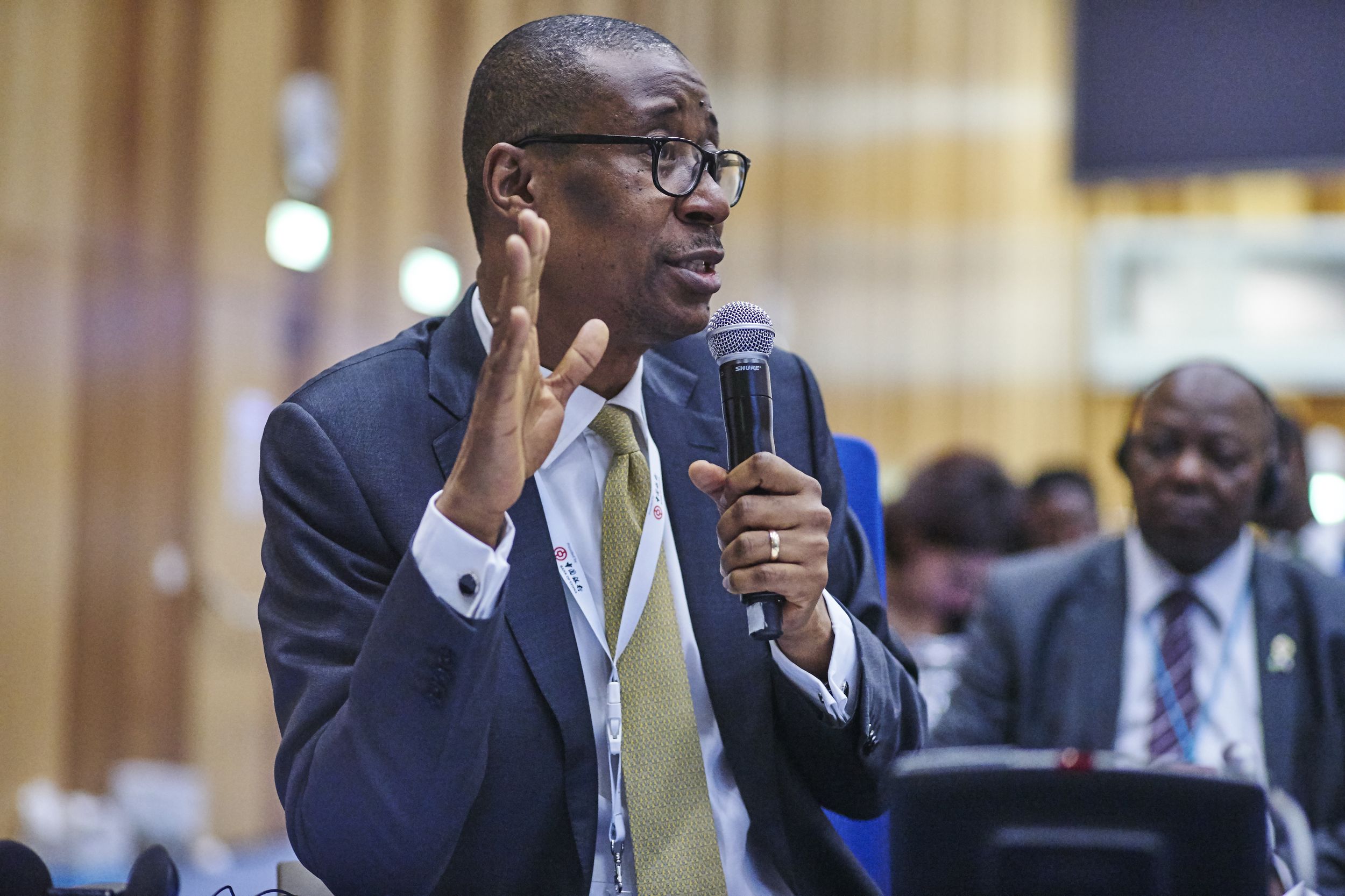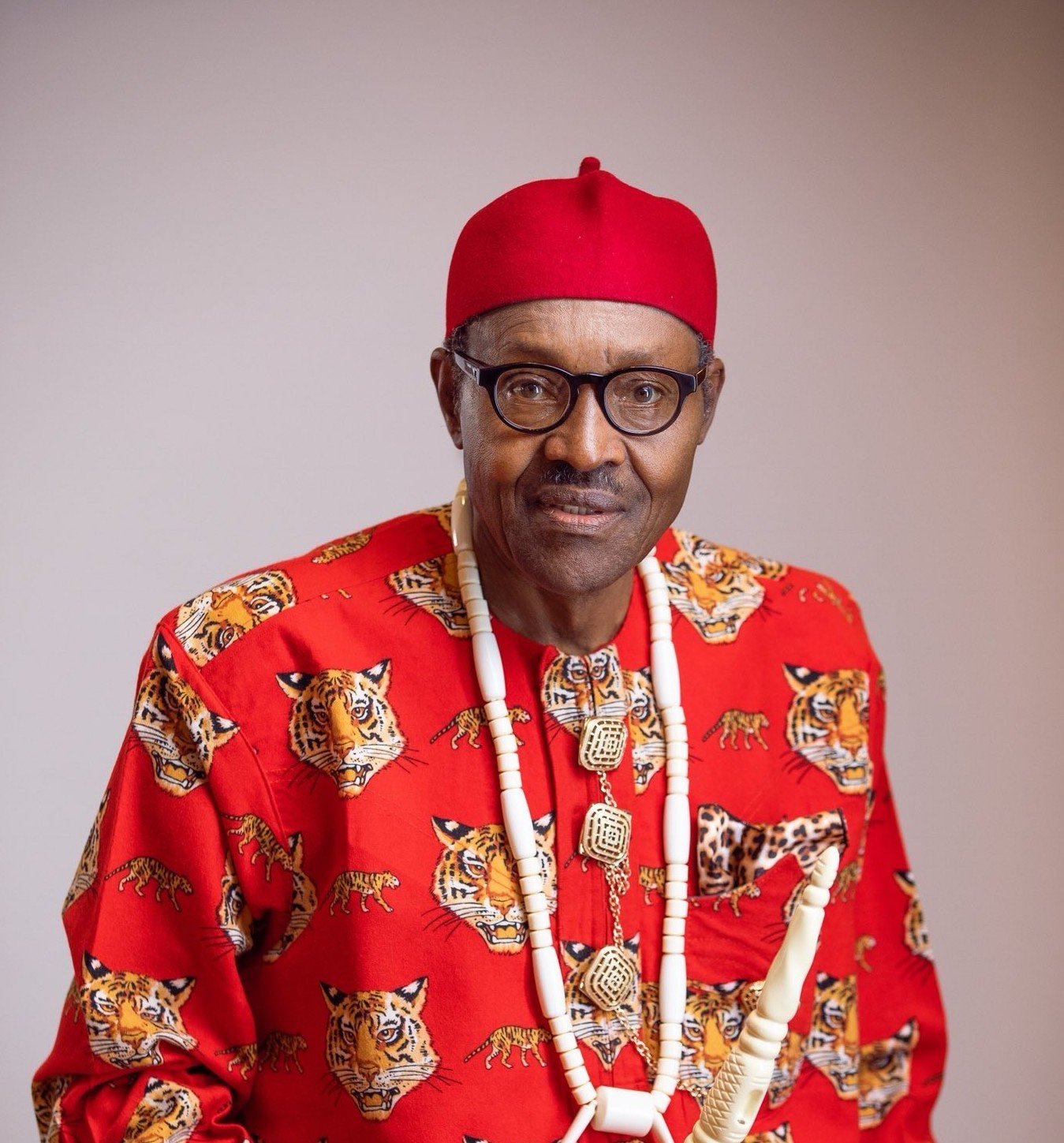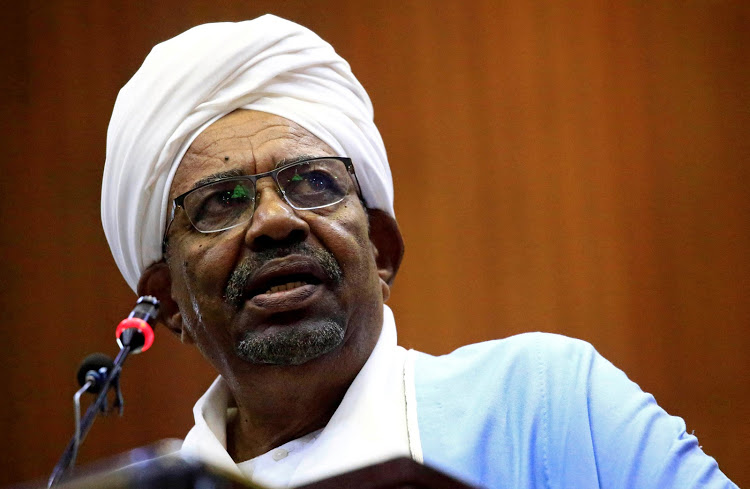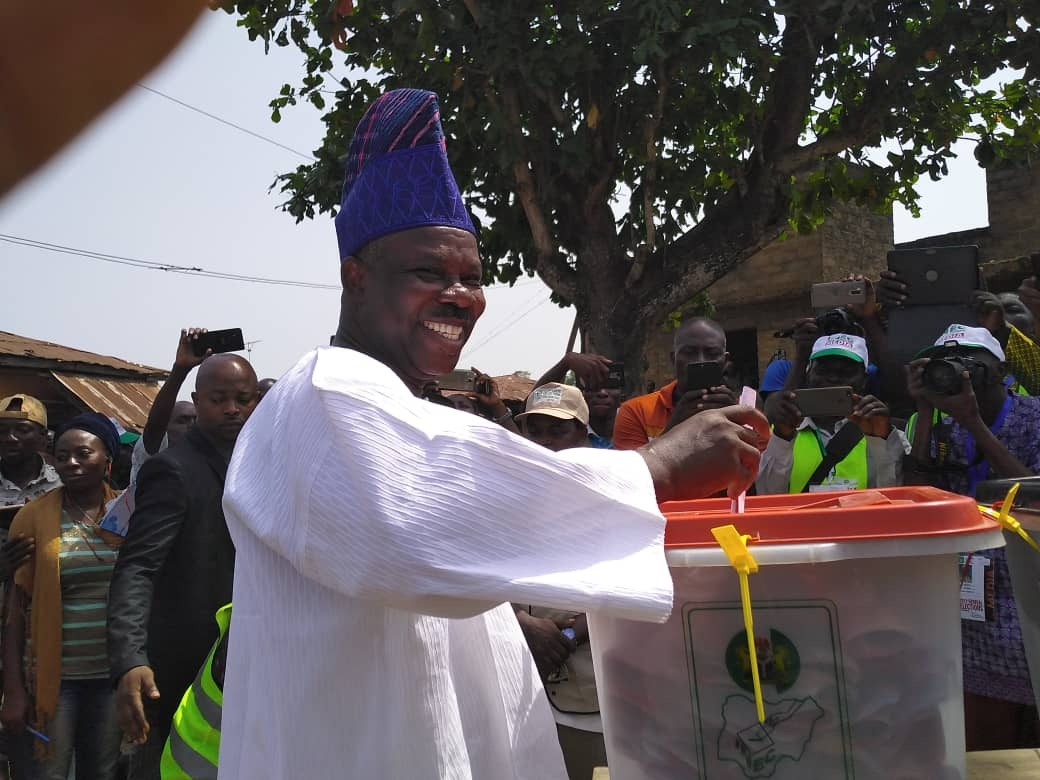Nearly all four years at the helm of the Ministry of Industry, Trade and Investment, Dr. Okechukwu Enelamah has been driven by the need to improve Nigeria’s business environment for sustainable economic growth.
“When I became minister, I promised that my vision for the Ministry is for it to be seen as the Ministry of Enabling Environment,” he says.
“We aspired to make Nigeria one of the most attractive places to do business in Africa and even the world, by improving the business environment.”
Backed by President Muhammadu Buhari’s commitment to a more conducive and attractive business environment in Nigeria, the Presidential Enabling Business Environment Council (PEBEC) was established under the chairmanship of Vice President Yemi Osinbajo.
Advertisement
As Vice Chairman of PEBEC, the Minister is actively involved in Nigeria’s ongoing efforts to achieve a sub-100 ranking by the World Bank on Ease of Doing Business.
Recently, he was in Lagos to launch the REPORTGOV.NG App, an official public service feedback and complaints platform to support business climate reforms implemented by the Council since 2016. The platform is to facilitate the escalation and resolution of issues encountered with Ministries, Departments and Agencies (MDAs) towards ensuring a more business-friendly environment.
PEBEC has also commenced the fourth 60-day National Action Plan (NAP 4.0) on Ease of Doing Business (EoDB).
Advertisement
The NAP 4.0 aims to further reduce the challenges encountered by SMEs and businesses in areas such as starting a business; access to credit; paying taxes; enforcing contracts or trading within and across borders; amongst others, by eliminating critical bottlenecks and constraints.
The first, second and third National Action Plans resulted in significant progress, and the fourth National Action Plan is anticipated to strengthen these ongoing reforms.
The concerted efforts at improving the ease of doing business have paid off. Among the achievements are improvements in Nigeria’s business regulatory environment. The country rose 24 places from 169 to 145 in the World Bank’s 2018 Ease of Doing Business Index; its highest jump in the history of the rankings.
And although Nigeria ranks 146 in the latest Doing Business rankings, the country’s Distance-to-Frontier (DTF) score, which is the absolute metric, improved from 51.52 in Doing Business 2018 to 52.89 in 2019.
Advertisement
In all areas of the Ministry’s mandate, there are ongoing reforms but Enelamah is able to keep his eye on all the balls.
The mandate of the Ministry is creating an enabling business environment for businesses to thrive; implementing the Nigerian Industrial Revolution Plan (NIRP); attracting long-term local and foreign investment; encouraging expansion of MSMEs; and promotion of global and regional value chains that enhance trade.
One of the silent reforms of the Ministry is in Intellectual property, such as trademarks and patents, an area key to ensuring an enabling environment for business.
It entails the development of a National Intellectual Property Policy for Nigeria; modernisation of the legal framework to capture existing treaty obligations of Nigeria; extend the coverage of the law to more recent developments; and the modernisation of the administrative regime for IP in Nigeria.
Advertisement
In the past, stakeholders were encountering problems such as delays and lack of clarity about processes, poor state of records, which were not digitised, making for ease of destruction and loss; as well as difficulties with access and retrieval of records.
These necessitated urgent transformation of the administrative processes within the Commercial Law Department of the Ministry and, indeed, the structure and operations of the Department.
Advertisement
Among the early achievements are streamlining of the Registries as separate Registries (Patents & Designs, and Trademarks) with different registrars in accordance with the Acts establishing them.
This has made for better accountability; and the backlog of applications for registration and issuance of certificates for accepted and unopposed applications dating back to 2014 has been cleared by the registries. It has also relieved stakeholders of frustrations and restored their confidence in the registries.
Advertisement
For the first time since the Trademarks Act came into force some 51 years ago, an Annual Report on Trademarks has been issued.
Total files digitised as at October 31, 2018 was 266,318: made up of 16,650 files from the Registry of Patents and Designs; and 249,668 files from the Registry of Trademarks.
Advertisement
The importance of industrialisation in Nigeria’s economic growth has never been in doubt, yet its contribution to Gross Domestic Product has been low. With a commitment to making Nigeria competitive for local production and thereby increasing the contribution of manufacturing to GDP, the Ministry has been leveraging the country’s comparative advantage and factor endowments.
To accelerate industrial development, the ministry, which has embarked on an aggressive implementation of the Nigeria Industrial Revolution Plan,initiated the establishment of the Nigeria Industrial Policy and Competitiveness Advisory Council aimed at increasing the contribution of the manufacturing sector to GDP by 250 per cent over a five-year period, and establish Nigeria as the manufacturing hub for West Africa, by implementing initiatives aimed at accelerating industrialization, leveraging private sector expertise and capital.
The Council has made many high-level interventions to address industrial sector issues such as electricity supply, broadband penetration and access roads. A recent example is the Road Infrastructure Development and Refurbishment Investment Tax Credit Scheme, under which the private sector has committed to sponsoring the construction or rehabilitation of road projects across the country.
The Council is also engaged in the implementation of sectoral policies for areas in which the country has comparative advantage such as in agriculture and petrochemicals.
Acknowledging the major role of Small and Medium-Scale Enterprises in industrial and economic development, the Ministry made noticeable improvement in access to finance for this category of investors.
Numbering over 77 million, MSMEs contribute almost half of Nigeria’s GDP and employ over 60 million people.
In the last four years, there have been sustained efforts to build capacity, increase access to finance and eliminate bottlenecks to conducting business in Nigeria. Some of the achievements in support of MSMES include the inauguration of the National Council on Micro Small & Medium Enterprises (NCMES) for more focus on MSMES.
The Ministry has increased access to finance for MSMES by providing capital for both start-ups and expansion through the interventions of the Bank of Industry and the World Bank-funded Growth and Employment (GEM) Project.
The Bank of Industry, which is an agency of the Ministry, provides relatively low-interest rate and innovative financing solutions as incentives towards stimulating interest and growth of entrepreneurship.
The bank’s disbursements are to 11 sectors, including food processing, agro-processing, healthcare and petrochemicals, solid minerals, N-Power, the creative industry and gender business amongst others.
Between January 2015 and October 2018, the bank disbursed a total of N487.5 billion to 3,334 large, medium and small enterprises.
The ₦112billion Government Enterprise and Empowerment Programme (GEEP) fund, which is part of the ₦500billion National Social Investment Programme, is aimed at providing microcredit facilities to market women, traders, artisans, farmers and agricultural workers at zero per cent interest rate. GEEP is estimated to reach 1million beneficiaries annually. So far about ₦37.72 billion has been disbursed to 1,266 enterprises.
The Bank introduced the TraderMoni product for micro-businesses across value chain clusters – motorcycle riders, food vendors and petty traders. The fund has eased access to suitable finance by these categories of businesses which in turn will enable them to grow their businesses.
It also initiated MarketMonito provide financial aid for the under-banked and unbanked. This objective is being achieved by providing easy and quick loans at no interest rate.
Under the GEM project, a total of NGN 3.7b (USD 12.2m) has been disbursed to 910 grantees via the grant windows, while over 21,191 MSMEs have received technical assistance.
And, in partnership with the private sector, the ministry is developing a technology-based MSME solution, known as SME Portal, to ease the operation of businesses across the country.
The capital needed to transform Nigeria to the country of our dreams cannot be funded entirely by the government so the ministry has reached far and wide across the globe for the needed capital through active partnership with the private sector.
Investment sourcing capabilities of the Nigeria Investment Promotion Commission (NIPC) have been strengthened with a focus on proactively targeting and attracting domestic and international investors and investments. NIPC is also actively providing after-care support for businesses in Nigeria.
Recent achievements include the attraction of US$73.08 billion proposed investments for 65 projects in 18 states and the FCT; and the signing of MoUs with United Kingdom, Germany, and China for investment commitments totaling several billions of dollars.
To accelerate the Nigeria Industrial Revolution Plan, a project to develop world-class Special Economic Zones to position Nigeria as the pre-eminent manufacturing hub in sub-Saharan Africa, and a major exporter of made in Nigeria goods and services regionally and globally, was initiated.
Called Project MINE, (Made in Nigeria for Exports), it is to aid structural transformation of the Nigerian economy by increasing the manufacturing sector’s contribution to GDP to 20 per cent by 2025; contribute to sustainable inclusive growth by creating 1.5 million new direct manufacturing jobs in the initial phase; and to increase and diversify non-oil foreign exchange earnings to at least US$30bn annually by 2025, by increasing manufacturing sector exports.
In February, the Federal Government signed investment agreements with three Development Finance Institutions; Afreximbank, Bank of Industry and the Nigeria Sovereign Investment Authority (NSIA) for the development of the project.
The three DFIs are among the five to partner with Nigeria SEZ Investment Company Limited (NSEZCO) and the Ministry of Finance Incorporated. The other investment partners are Africa Finance Corporation (AFC) and African Development Bank (AfDB).
NSEZCO intends to raise at least US$500million in equity over the first five years in order to execute its ambitious strategy of becoming the leading investor in special economic zones in Africa.
The projects in the pilot phase include Enyimba Economic City, Funtua Cotton Cluster and Lekki Model Industrial Park. Pre-development studies have also commenced in other locations such as Benue, Kwara and Sokoto States and are about to commence in other locations such as Ebonyi, Edo and Gombe States.
In recognition of the interrelationship between industrialisation and trade as key drivers for economic growth, the Ministry established the Nigeria Office for Trade Negotiations (NOTN) to address challenges arising from the absence of a coordinated and integrated approach to trade policy negotiations.
Laudable as these reforms are, the proof of their desired relevance in the socio-economic development of the country will be their continuity in an environment plagued by policy reversals.
Daniels is the strategy and communications adviser of the minister of industry, trade and investment.
Views expressed by contributors are strictly personal and not of TheCable.
Add a comment







